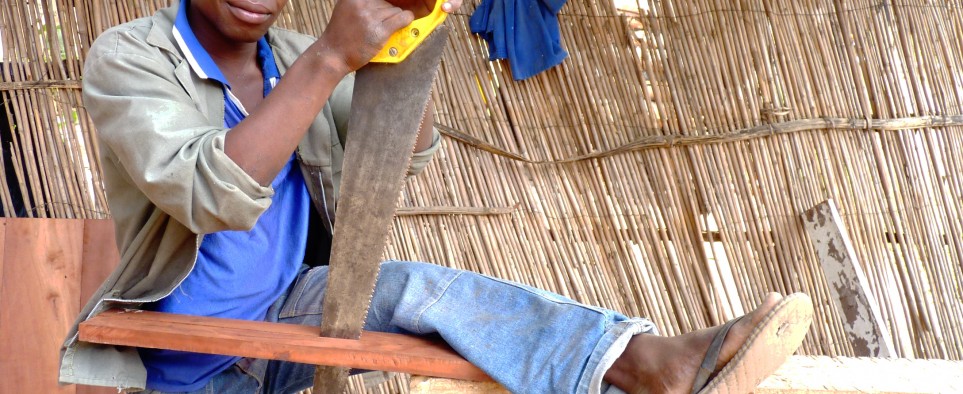[Mark Wielga was in Malawi and Kenya in June. The next several posts reflect his experiences. An update to the Paladin Kayelekera HRIA is forthcoming later this summer.]
Foreign investment is a major feature of both of this week’s global development summit in Addis Ababa, and the 2030 Sustainable Development Goals. What the private sector’s role will be is still poorly established, though, even as the UN Guiding Principles has laid out the responsibilities of governments, businesses and civil society as promoters of universal rights.
So when the UN co-sponsored a dialog on business and human rights in Malawi last month, it was notable that Paladin Energy, owner of the Kayelekera Uranium Mine and the country’s largest extractive investor, was not in attendance. Paladin declined a seat on a panel moderated by an anti-mining activist.
Who is responsible for bringing business to the table?
Paladin’s absence at the meeting is characteristic of the company’s corporate-level policy of non-engagement. Although Paladin has collaborated with NomoGaia to allow access to operations and personnel, no environmental data has ever been supplied. Since opening Kayelekera’s gates in 2008, Paladin has never published an environmental monitoring report. Until very recently it did not publish its payments to the Malawian government. Activists, journalists and human rights researchers have been turned away at the gates. The rights-respectful approach to projects is to “know and show” that impacts are not negative, and Paladin has opted for opacity.
Meanwhile, state-run media publishes stories alleging that Paladin dodged taxes and damaged health, while citing no data. The Ministers of Finance and Health remain silent, though the government can point to no demonstrable investments it has made with the $1.2 million per *week* it was receiving from Kayelekera during operations, which totaled 10 percent of GDP during its last 5 years of operation.
Civil society, spearheaded by internationally-funded Citizens for Justice (CFJ) is not using data when attacking the company, either, but CFJ was slated to chair a panel on the impacts of mining on Malawian rightsholders. Its allegations against the company have ranged from watershed damage to tax evasion to radiation poisoning. None of these have borne out.
A context for collaboration?
Malawi is an extremely difficult place to do business. Minimum wage isn’t livable and many employers don’t pay it (Paladin is not among these). Government personnel systematically siphoned money from aid budgets for years. Only a quarter of roads are paved. Ninety-one percent of the population is off the grid, and where connections exist, electricity doesn’t work. Tap water, available to a minority, isn’t drinkable. The health care system is largely donor funded, and donors revoke aid to penalize corruption. The education system is corrupt and underfunded. There are large portions of the country where you can’t hire a taxi or call an ambulance, let alone get a car repaired if it breaks down. How does a company ensure that 90% of its workforce is local when 4 in 10 adults can’t read? How does it hire electricians from the local community when those inhabitants have never had electricity? How can it protect a community from the illnesses that accompany incoming job-seekers, when there is no health facility within a 12-km radius and no doctors within 50km?
A conversation about business and human rights is important to Malawi’s development. That conversation can begin with Paladin’s weak environmental reporting, but it must go much farther.
It must consider the human rights risks of operating in a country where personnel at the Anti-Corruption Bureau will tell you, “You’ve never met a Malawian who hasn’t a bribe.”
It must consider how a nondiscrimination policy can be implemented when women face systematic discrimination in society, and when primary school is not taught in the languages spoken by ethnic minorities.
It must consider how to determine a living wage when state-mandated minimums are woefully inadequate to support a household.
The UN’s co-sponsored conference on business and human rights in Malawi last week did not include those issues on the agenda.
A balance between “name and shame” and “know and show”
There are multinational corporations in Africa that are short-changing African governments by underpaying royalties, harming communities by forcibly resettling them and damaging livelihoods by degrading the environment. There are also multinational corporations in Africa that are halting disease transmission, training a mobile workforce, pushing back against government corruption, developing eco-minded engineers and breaking down ethnic and gender barriers.
The UN Guiding Principles drew their strength from the buy-in of civil society, governments and companies. As companies start demonstrating good-faith efforts to meet their responsibilities, activists and administrators will contribute most to ensuring that businesses respect human rights by recognizing both when well-meaning companies need a helping hand, and when bad actors take advantage of broken systems. It’s a difficult task, but a vitally important one.


